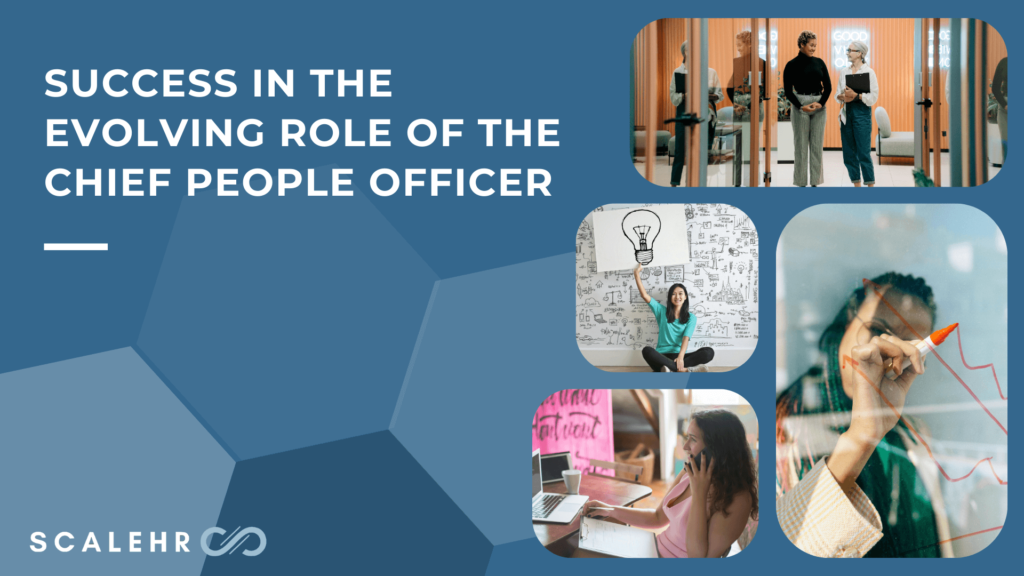In today’s rapidly changing business landscape, the role of the Chief People Officer (CPO) is evolving at an unprecedented pace. In our recent podcast episode titled, “Redefining & Evolving the Chief People Officer: What It Takes to Succeed”, with Joanna Kmiec, we delved deep into what it means to be a successful CPO in the modern era. You can watch the full episode below.
Top Learnings from the Podcast Episode
Embracing a Strategic Mindset: The traditional role of the CPO has often been seen as primarily administrative, focusing on HR tasks such as recruitment, payroll, and compliance. However, today’s CPOs are expected to be strategic partners to the CEO and the executive team. This means understanding the business’s overall strategy and aligning the people strategy to support and drive business goals.
Fostering a Culture of Continuous Learning: In the episode, we discussed the importance of creating a culture where continuous learning and development are prioritized. This involves not only providing opportunities for professional growth but also encouraging a mindset where employees are motivated to seek out new knowledge and skills proactively.
Leveraging Data and Analytics: Modern CPOs must be adept at using data and analytics to inform their decisions. This includes everything from tracking employee engagement and performance metrics to predicting future workforce needs. By leveraging data, CPOs can make more informed decisions that positively impact the organization.
Championing Real Diversity, Equity, and Inclusion (DEI): Diversity, Equity, and Inclusion (DEI) must go beyond virtue signalling, marketing slogans, tickbox exercises, affirmative action, and quotas. True DEI means creating an environment where every individual feels genuinely connected to the organization and empowered to do their best work. This involves embedding organizational values into the company’s culture and practices, ensuring that all employees feel valued, respected, and included. By fostering such an environment, organizations can attract top talent, drive innovation, and build a more collaborative and dynamic workforce.
Navigating Change and Transformation: Change is a constant in today’s business world, and CPOs must be skilled in managing and leading through change. Whether it’s a company-wide transformation, a shift in business strategy, or adapting to new technologies, CPOs need to be agile and resilient, guiding their teams through transitions smoothly.
Building Strong Relationships: The ability to build and maintain strong relationships is crucial for CPOs. This includes relationships with employees, the executive team, and external partners. Effective communication and empathy are key skills that help in understanding and addressing the needs and concerns of various stakeholders.
Prioritizing Employee Well-Being: Employee well-being has become a top priority, especially in the wake of the global pandemic. The episode emphasized the importance of CPOs in creating and promoting initiatives that support the physical, mental, and emotional well-being of employees. This not only enhances employee satisfaction and retention but also boosts overall productivity.
Conclusion
The role of the Chief People Officer is more dynamic and multifaceted than ever before. To succeed, CPOs must be strategic thinkers, data-driven decision-makers, champions of diversity and inclusion, and adept at navigating change. By fostering a culture of continuous learning and prioritizing employee well-being, CPOs can drive their organizations toward sustained success.








